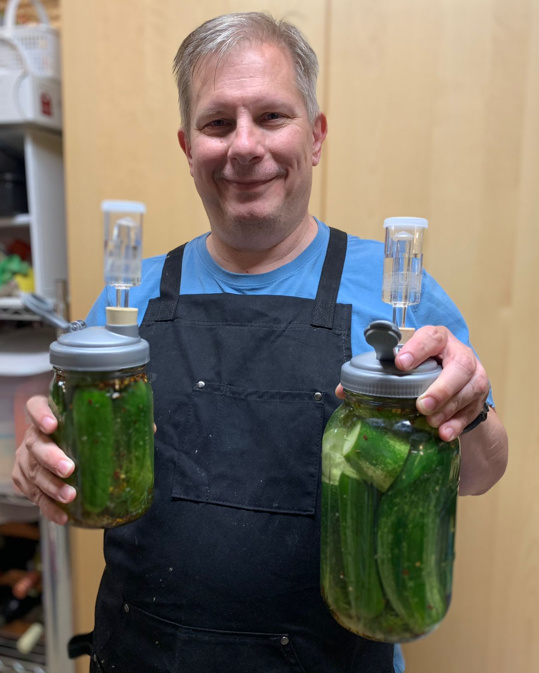@ctviggen Awesome! Congrats on your fermentation adventures.
I’ve been making home-ferment pickles, sauerkraut and kimchi now for some time and we absolutely love it - with several mason jars of each on hand at all times.
A fantastic book to explore recipes and essential info is “Fermented Vegetables” by a wife/husband team, the Shockeys. Their second book extends into hot/spicy variations, called “Fiery Ferments.” Both are highly recommended.
FWIW, I bought this: “E-Jen Premium Kimchi, Sauerkraut Container Probiotic Fermentation with Inner Vacuum Lid” on Amazon and it’s a fantastic crock - use it constantly. Pick your ideal size.
I also regularly use litmus paper (in a roll/ cutting off tiny strips) to test for acidity. Since temperature, water, salinity, individual veggies can all affect fermentation time, I take the guesswork out by testing for pH directly before moving a batch from counter-top to fridge (i.e., also from crock to jars).
We tend to like really sour/spicy, so for me I reach for 3.5 pH … but pickles can be great at around 4.0 ph (“half sour”).
These veggies are great for eating of course, but also healthy for your gut biome. Happy fermenting!






